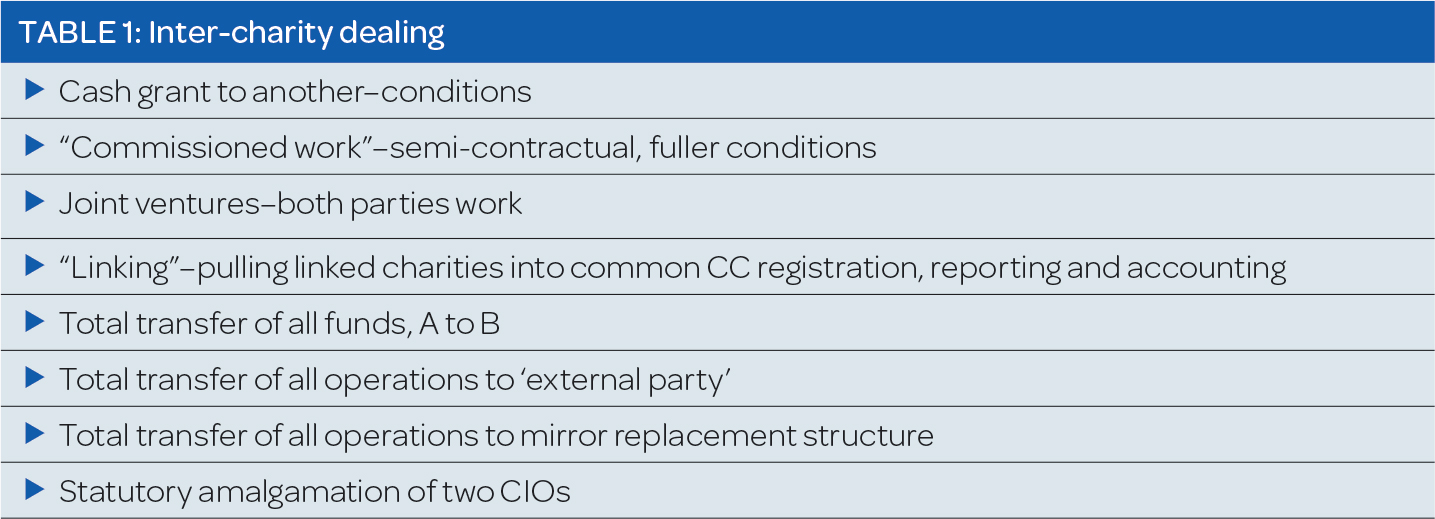
- Conflicts and constraints—essential knowledge.
- Property—what does it comprise?
- Indemnity—guidance needing re-delineation.
Charities work with each other. Government presses for greater efficiencies in the voluntary sector (eg, the Charities Act 2011 (CA 2011), s 14(4) ‘promote … effective use’). Structures need modernisation. So how do conflicts, property and indemnity inhibit common or desirable inter-charity dealings? See Table 1 for the types of transactions which concern us.

The steps for addressing conflicts are familiar and involve prior data capture/declaration, processes around ‘the’ decision, and subsequent public disclosure.
Then we need to drill down to the constraints. Charities’ constitutive documents are the starting point. Recent charities in the main adopt model constitutions promulgated by the Charity Commission, the Charity Law Association or umbrella bodies. New charities with unduly liberal bespoke clauses are unlikely to obtain registration. Conversely, historic foundations may bestow or permit benefit beyond modern conceptions of good practice.
Next are the statutory overlays. Charitable companies come both under









